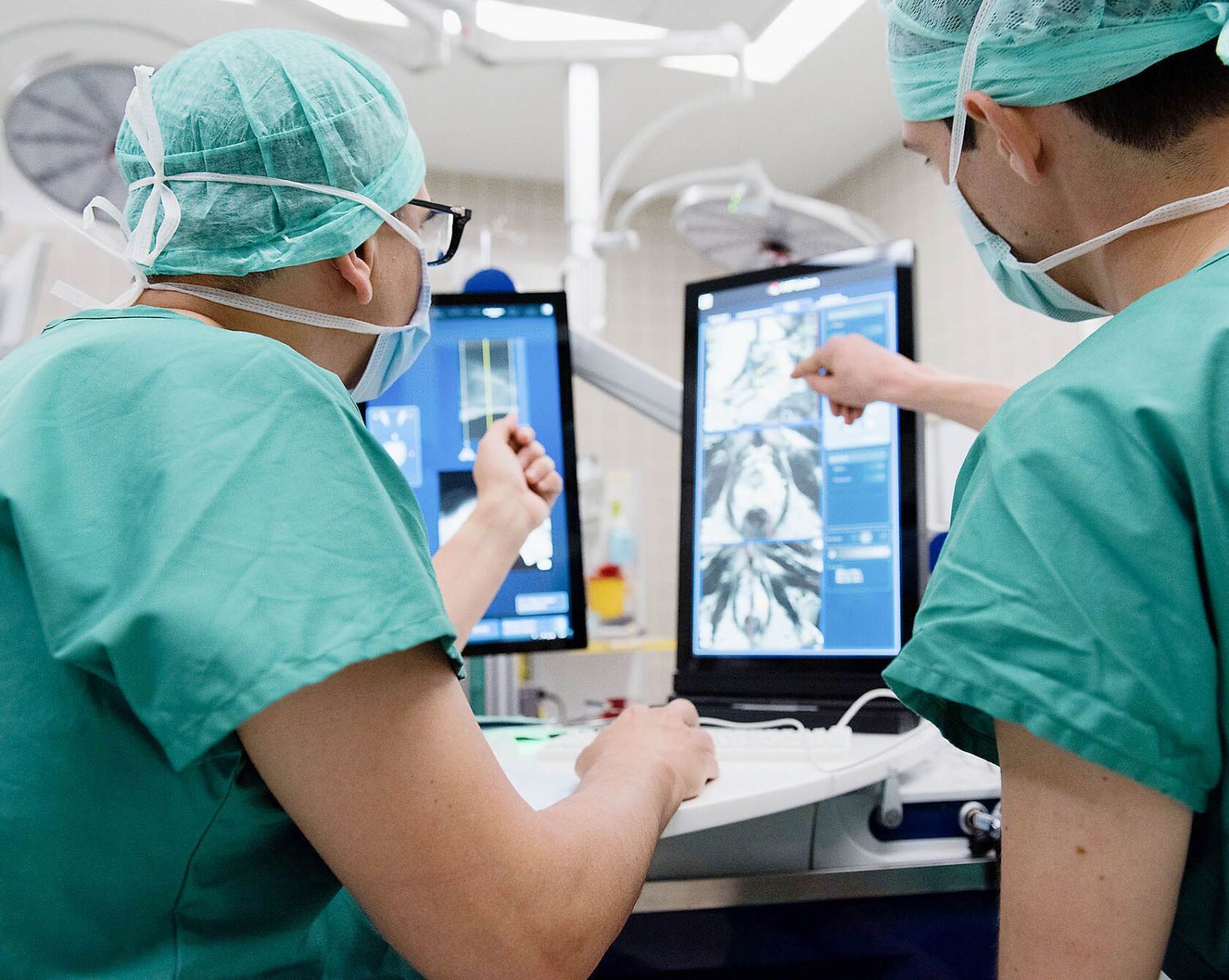Just 10 years ago, treatment for prostate cancer frequently led to severe blood loss, incontinence and impotence. Nowadays, the urology department at University Hospital Zurich is becoming increasingly successful at preventing unwanted adverse effects – thanks to innovative therapies and greater diagnostic precision.
“The family always suffers when a man develops prostate cancer,” says Daniel Eberli. The Director of the USZ’s Department of Urology speaks from experience. He sees patients regularly and is familiar with their worries and concerns. “In many cases, they are afraid of becoming impotent and losing control of their bladder.” These fears are understandable, since the standard treatment for prostate cancer was for a long time the surgical removal of the entire prostate. Just ten years ago, the lack of alternatives forced many doctors to accept that almost one in two patients would suffer severe adverse effects.
Significant technological development
Thankfully, scientific progress and rapid developments in technology have now taken us many steps further. Modern imaging procedures can pinpoint a tumour more precisely. New pathology techniques can determine with greater accuracy how aggressively the tissue is proliferating. Treatments have become more diverse and are better differentiated. When dealing with less aggressive tumours, doctors can therefore choose less radical alternatives than the complete removal of the prostate. The result: significantly fewer adverse effects.
Advantage for university hospitals
“Our primary goal is to maintain the patient’s quality of life as far as possible and as long as possible, and that means choosing the gentlest treatment,” says Daniel Eberli. “As a university hospital, we have a huge advantage in this respect since we are among the first in Switzerland to use new methods.” As an example: in 2014, urologists at the USZ became the first in Switzerland to treat a patient using focal therapy. This involves heating and destroying the cancer cells with pinpoint accuracy using high-intensity ultrasound, a process that can significantly reduce adverse effects.
Robot-assisted surgery
The USZ is leading the way for the whole of Switzerland in the area of robot-assisted surgery. Surgery on the prostate is usually performed laparoscopically – using keyhole technology. In recent years, all such procedures have been performed with the aid of robots. More than 2,000 prostate operations have been performed at USZ with the assistance of a Da Vinci robot. Robot-assisted surgery also has advantages for patients – less blood loss, less pain, and faster recovery. Advances have also been made in radiotherapy. In 2019, the USZ began using Switzerland’s first MRI Linac – a device that combines radiotherapy and imaging in one unit and is opening up new possibilities for tumour treatment.
Screening recommended
Prostate cancer is still by far the most common cancer among men. In Switzerland, more than 6,000 men receive this diagnosis every year, while 1,500 die of the disease. Fortunately, this type of cancer often grows relatively slowly and is not fatal. Many patients can be treated successfully, particularly if the cancer is detected at an early stage and has not yet spread. Daniel Eberli therefore recommends regular screening for men aged 50 and over.
